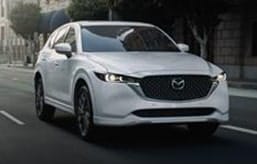- Lucid cuts Air prices again, with the Pure model starting at $71,400.
- The base Pure model's MSRP has dropped over $12K in a year.
- Lucid has also rolled out new incentives to help draw in buyers.
Lucid Cuts Prices of Air Luxury EV Yet Again
Lucid has dropped more than $12,000 off its asking price in just a year
Lucid has announced yet more price cuts to the lineup of its sole vehicle, the Air electric luxury sedan. The base Air Pure, which previously started at $78,900, is now priced from $71,400 including destination. Lucid’s all-wheel-drive Air Touring starts at $79,400, down from the previous $87,400. Lucid has also reduced the price of the Grand Touring trim, though only slightly — from $112,400 to $111,400. The top-of-the-line Air Sapphire now starts at $250,500, though this only represents a $300 discount.
These cuts highlight the aggressive strategy that Lucid is employing to move units as it prepares for the launch of its next vehicle, the Lucid Gravity SUV. Early last year, the Pure was priced from $83,900, and the Touring started at $96,500. In just over a year, these two models shed $12,500 and $17,100, respectively, from their MSRP.
During its last round of cuts in December, Lucid restructured trims to slash prices, removing standard features like ventilated and massaging seats and making them optional instead. In contrast, no features have been dropped this time around — there are even additional incentives to make purchasing an Air more attractive. Lucid will put $1,000 toward the purchase of a home charging station and will include free scheduled maintenance for two years or 24,000 miles.
The automaker’s vehicles are still not eligible for the federal EV tax credit of $7,500 at purchase, but lessees can take advantage of the full amount. Still, even without the tax incentive, Lucid’s models are now priced well under competitors, like the Mercedes-Benz EQS and Tesla Model S.
Am I Ready for an EV?
- EV ownership works best if you can charge at home (240V outlet)
- Adding a home charging system is estimated to cost $1,616 in
- Edmunds is partnering with Treehouse, an independent provider of home EV installation services. Learn more about the installation services partnership
Edmunds says
Lucid has drastically cut prices over the course of the last year, yet the automaker still struggles. Hopefully, undercutting its competition can help boost sales in 2024.



 by
by